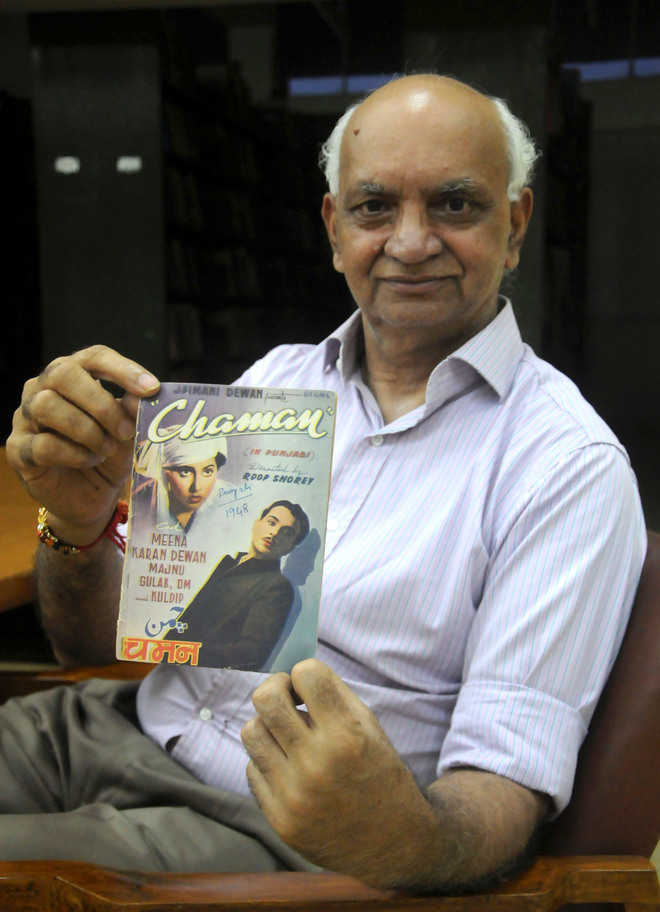Vishav Bharti
Tribune News Service
Chandigarh, August 13
A year after Partition, independent India’s first Punjabi film, ‘Chaman’, was ready for release. With a majority of the audience left on the other side of the border, the filmmakers decided to first screen this love triangle in Lahore.
Film historian Bhim Raj Garg, who is preparing an encyclopaedia on the first 50 years of Punjabi cinema, says ‘Chaman’ premiered at Ratan Cinema, McLeod Road, Lahore, on August 6, 1948. Later, the movie was released in Bombay in October that year and at City Light Cinema, Amritsar, a month later.
“‘Chaman’ epitomes the downfall of Punjabi cinema. Most of the moviegoers were left in Pakistan, while the people running the film industry migrated from Lahore to India,” he says.
Several other hit Indian films, such as ‘Aan’, ‘Babul’ and ‘Anokhi Ada’, were also first released at Ratan Cinema and they did good business. ‘Aan’ grossed more than Rs.1.5 crore, a huge amount at that time, and completed its golden jubilee at Ratan Cinema.
After Bombay and Calcutta, Lahore was the third biggest centre of cinema in the subcontinent. “Partition hit the film industry by destablising two film hubs of undivided India — Calcutta and Lahore,” he adds.
The practice of releasing Indian Punjabi films in Lahore continued till 1955. Later, strained ties between the two countries became an impediment. Indian films were banned in Pakistan during the 1965 war. Punjabi cinema could never recover from the Partition blow, says Garg. “Lahore gave us our first superstar, Nazir Ahmad Khan, who was cast opposite 35 actresses. Most of them were the reigning screen queens of those times. However, he lost it all in the 1947 turmoil,” he adds.
According to Garg, the lndian catastrophe is far behind the Jewish Holocaust when it comes to creative works revolving around the tragedy. “However, there has been a welcome rise in the number of films based on Partition since 1997,” he says.
Unlock Exclusive Insights with The Tribune Premium
Take your experience further with Premium access.
Thought-provoking Opinions, Expert Analysis, In-depth Insights and other Member Only Benefits
Already a Member? Sign In Now











